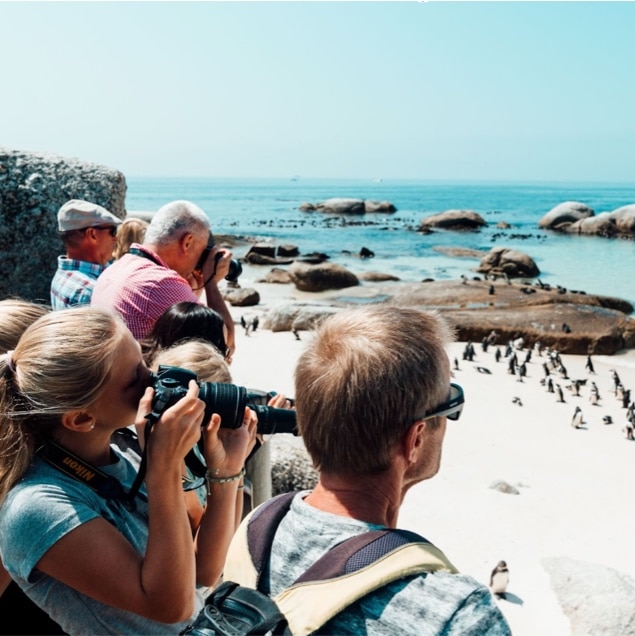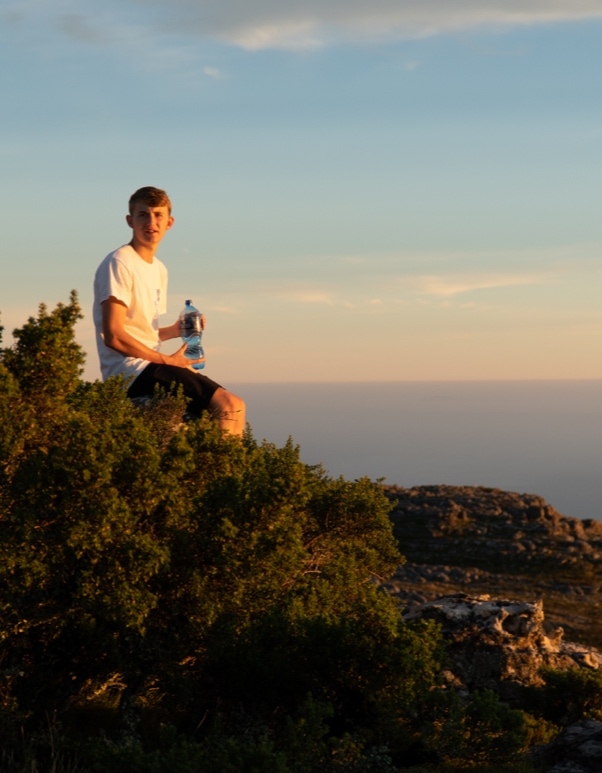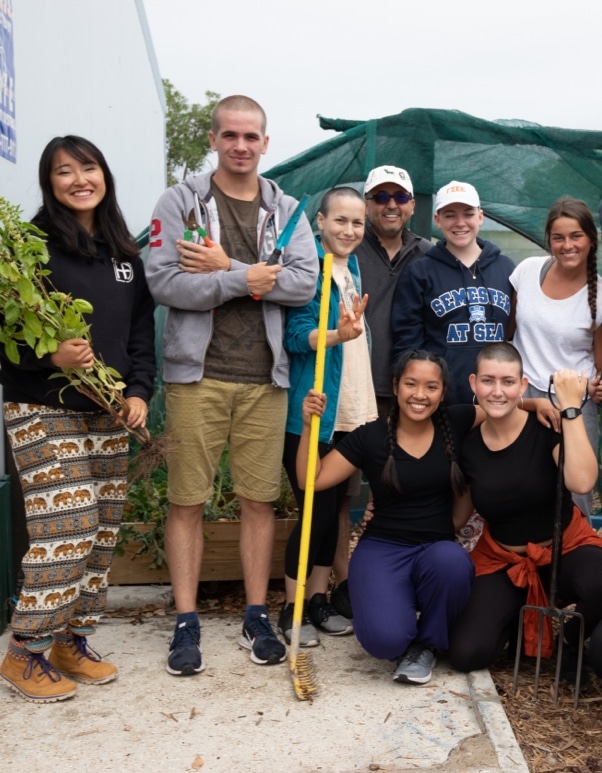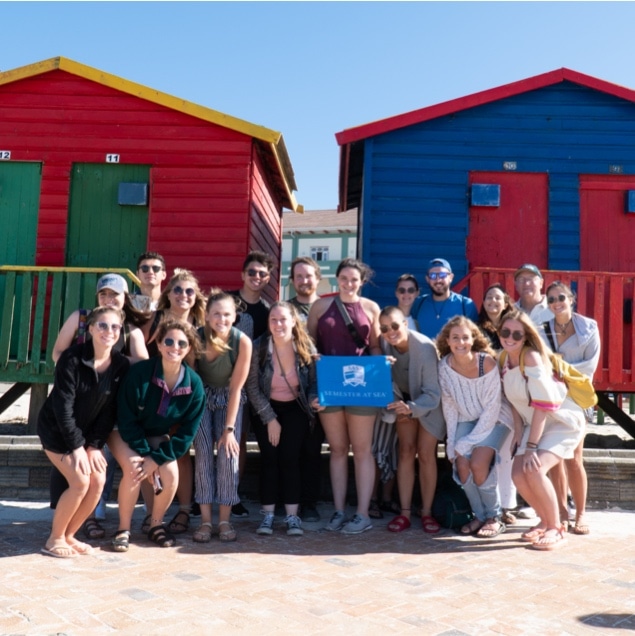Study Abroad Destination
South Africa
Discover our program’s southernmost port of call.
Sawubona! Mholo! Hallo!
Whether hiking Table Mountain for one of the world’s best views, riding horseback on safari, or engaging with local entrepreneurs in Cape Town, Semester at Sea voyagers always fall in love with South Africa. As our southernmost port of call, this destination offers voyagers a unique chance to experience an array of cultures and expand your travel horizons.

South Africa Overview
Why South Africa?

Full of adventure and captivating sights, South Africa offers countless opportunities for cultural and natural exploration.
Popular highlights include:
- Experiencing a unique diversity of cultures
- Practicing greetings in multiple languages
- Gaining an understanding of apartheid and its impact
- Encouraging once-in-a-lifetime wildlife
The in-country excursions provided by SAS staff and local guides are a chance to take in a wide range of attractions without needing to handle logistics.
Semester at Sea
The South Africa Experience
Cape Town serves as our port of call when we reach South Africa. Once voyagers disembark, Field Program options include overnight trips to a safari park, taking an aerial cableway up Table Mountain, and learning about the history of apartheid. While our stay in South Africa is brief — each stay in port lasts about five days — the country and its people, landscape, and wildlife leave a lifelong impression.
South Africa Program Options
- Visits to local schools and businesses
- Cooking and music classes
- Hands-on service and community projects
- Seeing the historical Robben Island and Langa Township
- Enjoying an evening of jazz with local musicians
- A visit to Seal Island and the Boulders Beach penguin colony

Upcoming Voyages

Germany Ghana India Kenya Malaysia Morocco Mozambique Portugal South Africa Thailand
Cape Town, South Africa
Voyager Travel Tips

Travel Tips for Cape Town Port of Call
Every destination and port of call is unique, and each carries its own set of circumstances and expectations for travelers. Our top priority is the health and safety of our voyagers — we want all program participants to be as informed as possible so they can enjoy each port experience to the fullest.
Please be advised that the tips below provide a general overview of travel considerations and are not intended to dissuade voyagers from experiencing this unforgettable destination.
Local transportation includes taxis, buses, and Uber. Regional travel is possible via train and airplane.
Ship ID and passport (if flying to another city, staying in a hotel, or exchanging money in the bank). You will need your passport to clear Immigration on Departure Day.
Cape Town has a Mediterranean climate; the winters are mild, rainy, and humid, and the summers are warm and sunny. Expect moderate wind along the coast. Temperatures range from 55 °F (13 °C) in winter (July) to 72 °F (22 °C) in summer (February), with highs reaching 95 °F (35 °C). Extreme weather events include hail and rainstorms.
The official currency is the South African rand (ZAR). USD may be accepted in some places, but the exchange rate is high (1 USD = 14.52 ZAR). ATMs and currency exchange are widely available on the waterfront and in the city center, and Visa, MasterCard, and Amex are widely accepted. Tipping for services is customary: 10% of the total bill in restaurants and bars; R5–R10 per piece of luggage for porters at hotels and airports; round up to the nearest R10 for a taxi ride, a little extra for longer distances.
Common concerns for travelers include petty street crime (mugging), but local police are quite reliable and responsive. Visitors should avoid walking alone in the city, especially after dark, or entering townships or informal settlements unless escorted by a guide. Vehicles travel on the left side of the road (steering wheel on the right), so look both ways before crossing the street. Riptides are common and very dangerous along the coast; avoid entering areas with undertow and never swim alone. If on safari, never exit the vehicle with wildlife in the vicinity. Always travel in-country with a partner or group.
Tap water is not safe for visitors to drink — use only bottled, boiled, or otherwise purified water for drinking, cooking, and freezing. Please be aware there is a very high prevalence of HIV in South Africa, which is transmitted via bodily fluids.
The primary method of contacting SAS staff is via phone or text. The country code in South Africa is +27. To dial a number from an international mobile phone anywhere in South Africa, enter the entire number.
All voyagers receive contact information for local police, fire, ambulance, medical emergency services, and the U.S. embassy and consulate.